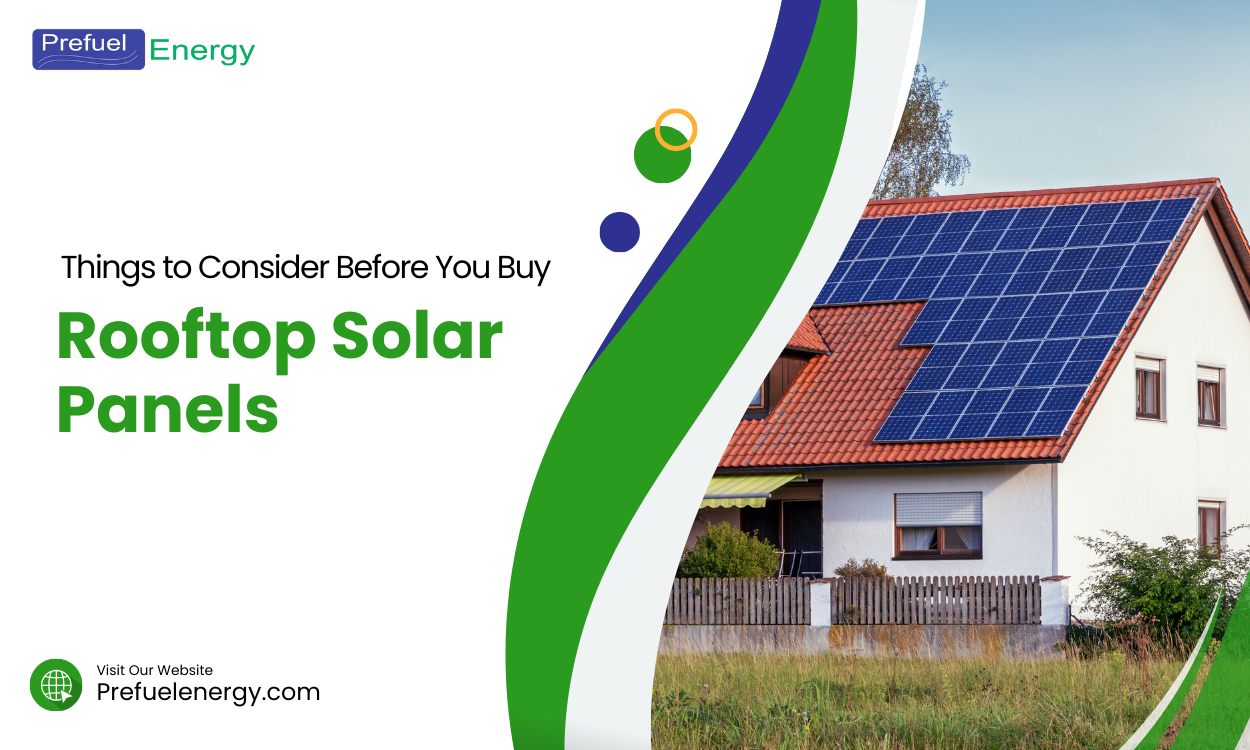Investing in rooftop solar panels is a significant decision that can lead to long-term savings and environmental benefits. However, before making this investment, there are several factors to consider to ensure you make the right choice. In this article, we will explore 10 Things to Consider Before You Buy Rooftop Solar Panels in detail, providing you with the necessary insights to make an informed decision.
Things to Consider Before You Buy Rooftop Solar Panels
1. Assess Your Energy Needs
Before you purchase rooftop solar panels, it’s crucial to assess your energy consumption. Understanding how much electricity you use will help determine the size of the solar system you need.
- Calculate Monthly Usage: Review your electricity bills to find your average monthly consumption in kilowatt-hours (kWh).
- Consider Future Needs: If you plan to add more appliances or upgrade your home, factor in those potential energy needs.

2. Evaluate Your Roof’s Condition
The condition of your roof plays a critical role in the installation of solar panels.
- Roof Age: If your roof is nearing the end of its lifespan, consider replacing it before installation.
- Structural Integrity: Ensure your roof can support the weight of the solar panels. A structural engineer can help assess this.
- Orientation and Tilt: South-facing roofs with a tilt of 30-45 degrees are ideal for solar panel installation.
3. Understand the Types of Solar Panels
There are different types of solar panels available, each with its advantages and disadvantages.
| Type of Solar Panel | Efficiency | Cost | Lifespan | Best For |
|---|---|---|---|---|
| Monocrystalline | 15-22% | High | 25+ years | Limited space |
| Polycrystalline | 13-16% | Moderate | 25 years | Budget-friendly |
| Thin-Film | 10-12% | Low | 10-20 years | Large areas |
4. Research Solar Providers
Choosing the right solar provider is crucial for a successful installation.
- Experience and Reputation: Look for companies with a proven track record and positive customer reviews.
- Certifications: Ensure the installer is certified by relevant organizations, such as the Solar Energy Society of India.
- Warranty and Support: Check the warranty offered on both the panels and the installation.
5. Explore Financial Incentives
The Indian government offers various subsidies and incentives for solar panel installation.
- Subsidy Programs: Programs like the Pradhan Mantri Suryodaya Yojana provide financial assistance for homeowners.
- Tax Benefits: Understand the tax credits and benefits available for solar installations.
- Financing Options: Explore financing options such as loans or leases that can make solar more affordable.
6. Calculate the Return on Investment (ROI)
Understanding the financial implications of your solar investment is essential.
- Initial Costs: Include the cost of panels, installation, and any additional equipment like inverters.
- Savings on Electricity Bills: Estimate how much you will save monthly on your electricity bills.
- Payback Period: Calculate how long it will take to recoup your initial investment through savings.
Estimated Costs for Solar Panel Installation
| System Size (kW) | Estimated Cost (INR) | Estimated Savings/Month (INR) |
|---|---|---|
| 1 kW | 50,000 – 70,000 | 500 – 1,000 |
| 3 kW | 1,50,000 – 2,10,000 | 1,500 – 3,000 |
| 5 kW | 2,50,000 – 3,50,000 | 2,500 – 5,000 |
7. Consider Net Metering Policies
Net metering allows you to sell excess energy back to the grid, providing additional savings.
- Check Local Regulations: Understand the net metering policies in your state, as they can vary.
- Potential Earnings: Estimate how much you could earn by selling surplus energy back to the grid.

8. Plan for Maintenance
While solar panels require minimal maintenance, it’s essential to plan for it.
- Cleaning: Dust and debris can reduce efficiency, so regular cleaning is necessary.
- Inspections: Schedule periodic inspections to ensure everything is functioning correctly.
9. Understand the Installation Process
Familiarize yourself with the installation process to set realistic expectations.
- Timeline: The installation process can take anywhere from a few days to a few weeks, depending on the complexity.
- Permits and Inspections: Ensure that all necessary permits are obtained and inspections are scheduled.
10. Evaluate Long-Term Sustainability
Think about the long-term benefits of switching to solar energy.
- Environmental Impact: Solar energy reduces your carbon footprint and contributes to a sustainable future.
- Energy Independence: Generating your own electricity provides protection against rising energy costs.
Conclusion
Investing in rooftop solar panels can be a rewarding decision, both financially and environmentally. By considering these 10 Things to Consider Before You Buy Rooftop Solar Panels, you can make an informed choice that aligns with your energy needs and financial goals.
FAQ’s
The cost can range from INR 50,000 to INR 3,50,000 depending on the system size and technology.
Homeowners can save between 80-90% on their monthly electricity bills after installing solar panels.
Yes, the Indian government offers various subsidies under schemes like the PM Surya Ghar Muft Bijli Yojana.
Most solar panels come with a performance warranty of 25 years, but they can last longer with proper maintenance.
While it is possible to install solar panels on shaded roofs, it may reduce their efficiency. It’s best to assess shading issues before installation.


